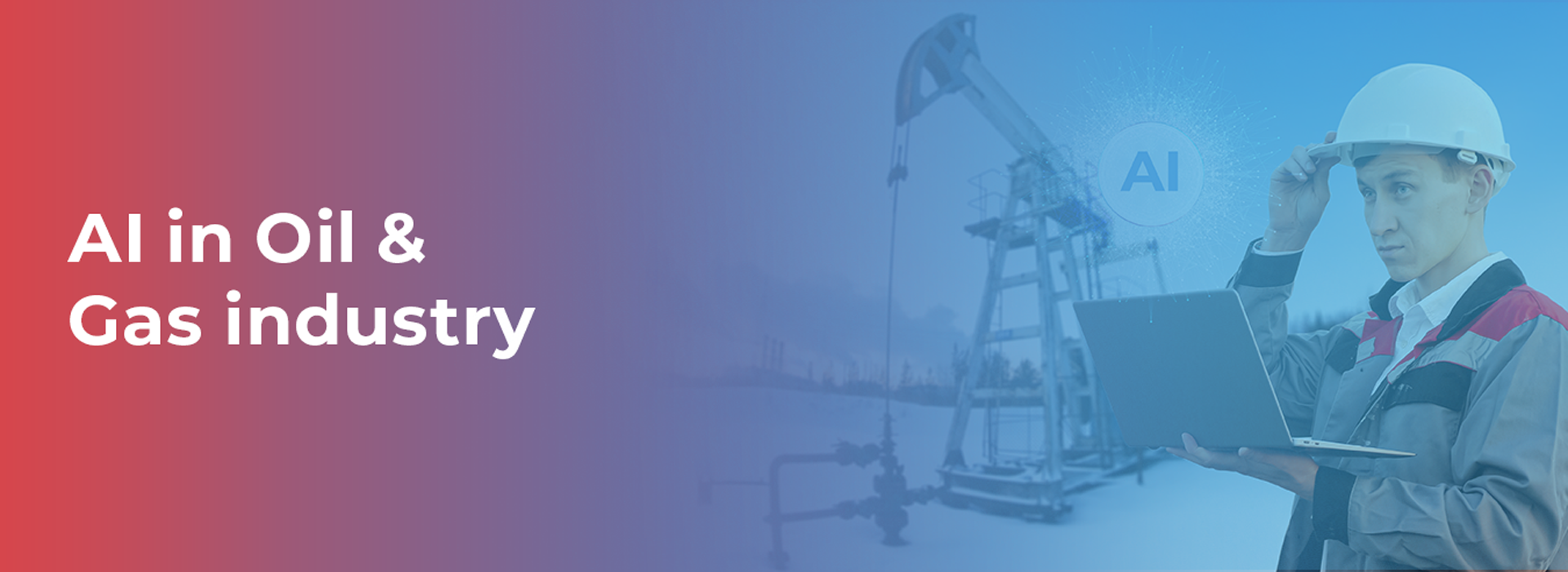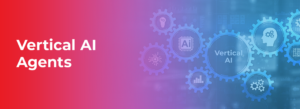- What Are The Forces Behind The Adoption of AI In Oil and Gas Industry?
- Here is an explanation of the reasons behind the current changes in technology:
- Advantages of AI in Oil and Gas Industry
- Core Functions of AI in Oil and Gas Industry
- How Macgence Implements AI Integrations
- The Prospects of AI in the Petroleum Industry and Gas Industry
How AI in Oil and Gas Industry Can Solve Common Problem
The oil and gas sector has evolved thanks to the discovery and development of energy sources and industry-relevant technological innovations. The next advancement set to impact on the industry is Artificial Intelligence (AI) which is spearheading yet another revolution in redefining efficiency and performance for the sector. What is the importance of AI in oil and gas industry?
Business, Science and Engineering students, IT professionals and the general public interested in the energy world must prepare themselves for drastic shifts in how energy is produced, processed, and consumed given the presence of AI. This blog post outlines AI’s role, the benefits it brings, how it is utilized, and even AI’s futuristic applications in the oil and gas industry.
What Are The Forces Behind The Adoption of AI In Oil and Gas Industry?
Energy businesses work in a multifaceted environment with high capital investment, long supply chains, and increasing pressures in the sustainability front. First and foremost, AI integration allows businesses to control resources to improve operational performance, a critical factor for competitiveness.
Here is an explanation of the reasons behind the current changes in technology:
Operations requiring data: The oil and gas industry has large amounts of spatial and operational data. AI systems are very good at understanding, analyzing, and generating actionable information from data.
Need for effectiveness: With the rising costs of energy and sustainability needs, AI improves the performance of resource exploration, production, and distribution.
Predictive information: Oil and gas companies reduce the possibility of having shutdowns, risks, and operations considerably through the use of AI powered predictive models.
Cutting edge technology in operations is easy to adopt with the help of data providers such as Macgence, who specialize in training AI and ML models.
Advantages of AI in Oil and Gas Industry

The improvement AI provides in terms of virtual and business goals makes its integration an obvious necessity. Some of these include:
Increased Operational Efficiency: With the fuel and energy sector workload automation of repetitive but highly complex tasks such as drilling tracking, equipment checking, attending to appointments, and operational spending, there is a wide range of cost savings.
Predictive Maintenance: AI predictive models analyze equipment sensor data to determine failures, resulting in a reduction in downtime and the associated repair costs.
Enhanced Safety Measures: Deployment of robotic drilling and vision computers increases safety at the workplace by eliminating human injuries in hazardous working conditions through AI application.
Maximized Efficiency: AI employs geospatial imagery and subsurface data to enhance exploration activities, aiming at targeting oil deposits with phenomenal precision, hence wasting little resources.
Factoring into AI Adoption: Operational data analysis enhances an organization’s understanding, providing helpful information for decision making in both tactical and strategic plans.
Core Functions of AI in Oil and Gas Industry
AI is not a new term only for some people, it is changing numerous processes imaginably and exceedingly efficiently. Here are five key uses that mark the importance of AI in the oil and gas sector.
1. Streamlining of Exploration and Production
Exploration and Production form the crucial components of the oil and gas industry. However, these activities are very expensive and entail significant risk. AI, through machine learning (ML) algorithms, automates the interpretation of seismic data and reservoir models, which translates to improved drilling prediction accuracy.
Illustration: Using AI, companies can analyze millions of seismic traces in order to obtain oil reserves that conventional methods will most likely not be able to detect. Further, machine learning predictive analytics performs economic ranking of the drilling prospects.
2. Predictive Maintenance
Dealing with inefficiencies in production and refinement activities is the best way to prevent revenue loss by taking a preventative downtime approach. AI systems utilize sensor data in a proactive manner by early detection of any potential issues and scheduling maintenance before any incidents may injure any existing resources.
Example: Intelligent systems monitor pipelines through distributed sensors. AI is able to ascertain minor failures that could become major incidents by flagging an issue when a drop in pressure suggests a leak that needs to be investigated.
3. Supply Chain Optimization
Involving both the transportation and the storage facilities along with the distribution complicated oil and gas supply chains are often integrated. AI is best suited to track logistics in real-time for ensuring the timely delivery of products and to curb any unforeseen delays.
Example: AI uses predictive algorithms to determine optimal routes and schedule remote and prompt oil transport, taking into consideration weather patterns, geopolitical factors, and logistical constraints.
4. Safety and Environmental Monitoring
The myriad activities stretching from deep-sea drilling operations to pipeline installations come with their fair share of issues that need concern in the oil and gas industry. AI-powered buffered computer vision enables users to identify numerous safety risks and ensures that the right environmental policies and regulations are followed.
Example: Computer vision systems enable the real-time detection of hazardous conditions or unsafe work practices at oil platforms, while AI drones monitor for oil leakages.
5. Strategies Towards a Sustainable Carbon Footprint
Energy transition and global sustainability goals are becoming important in the oil and gas sector. AI enhances emission monitoring and reduction by identifying operational gaps and providing energy-saving recommendations.
Illustration: Certain AI models work by tracking machine emissions in order to maximize carbon efficiency on a continuous basis, enabling operational productivity alongside the shift to sustainable carbon management.
How Macgence Implements AI Integrations
AI implementation is infrastructure-agnostic, meaning that virtually all industrial sectors can benefit, provided that there is sufficient quality data to adequately retrain existing AI models. Macgence is able to supply that data enabling the energy sector to train AI/ML models tailored to their specific needs. This enables companies to:
- -Develop better delphi models
- -Improve natural language understanding
- -Teach advanced computer vision
- -Provide specialized AI power for energy functions
Macgence is well aware of the challenges and achievement constraints of the industry and therefore provides out of the box datasets that correspond to the desired IoT dataset which ensures smarter, safer, and more efficient operations.
The Prospects of AI in the Petroleum Industry and Gas Industry
The critical concern is no longer with the question of AI adoption, but rather with the method of its implementation. With the persistent challenges of supply chains and the growing need for operational efficiency, the role of AI tools in enhancing productivity and competitiveness has become increasingly crucial.
AI bears a captivating edge, and its remote promise is painfully appealing, whether you are a seasoned energy executive or an energetic disruptor in the making. Companies are well-prepared to leverage AI, especially with reliable partners like Macgence. Who not only serve their clients with helpful and precise information but also provide the essential data necessary for model training.
With AI solutions set to address industry challenges. Companies have the opportunity not only to survive but flourish and help in spearheading the transition to an efficient, environmentally-friendly, and data-centric economy.
FAQs
Ans: – AI is used in the transformation of seismic data. Which in turn forecasts reservoir engineering activities, and additionally directs the drilling process. As a result, it enhances accuracy and reduces the cost of exploration.
Ans: – Resistance to AI integration generally stems from substantial upfront expenses, a lack of skilled workforce, challenges in migrating data from older systems, and concerns regarding data protection and confidentiality.
Ans: – AI models depend on and operate with high-quality data in order to yield accurate results. With incomplete or incorrect data, an AI model’s predictions will lead to negative consequences, particularly for the oil and gas sector.
You Might Like
February 28, 2025
Project EKA – Driving the Future of AI in India
Spread the loveArtificial Intelligence (AI) has long been heralded as the driving force behind global technological revolutions. But what happens when AI isn’t tailored to the needs of its diverse users? Project EKA is answering that question in India. This groundbreaking initiative aims to redefine the AI landscape, bridging the gap between India’s cultural, linguistic, […]
March 7, 2025
What is Data Annotation? And How Can It Help Build Better AI?
Spread the loveIntroduction In the world of digitalised artificial intelligence (AI) and machine learning (ML), data is the core base of innovation. However, raw data alone is not sufficient to train accurate AI models. That’s why data annotation comes forward to resolve this. It is a fundamental process that helps machines to understand and interpret […]
March 6, 2025
Vertical AI Agents: Redefining Business Efficiency and Innovation
Spread the loveThe pace of industry activity is being altered by the evolution of AI technology. Its most recent advancement represents yet another level in Vertical AI systems. This is a cross discipline form of AI strategy that aims to improve automation in decision making and task optimization by heuristically solving all encompassing problems within […]
March 5, 2025
Use of Insurance Data Annotation Services for AI/ML Models
Spread the loveThe integration of artificial intelligence (AI) and machine learning (ML) is rapidly transforming the insurance industry. In order to build reliable AI/ML models, however, thorough data annotation is necessary. Insurance data annotation is a key step in enabling automated systems to read complex insurance documents, identify fraud, and optimize claim processing. If you […]


 Previous Blog
Previous Blog







